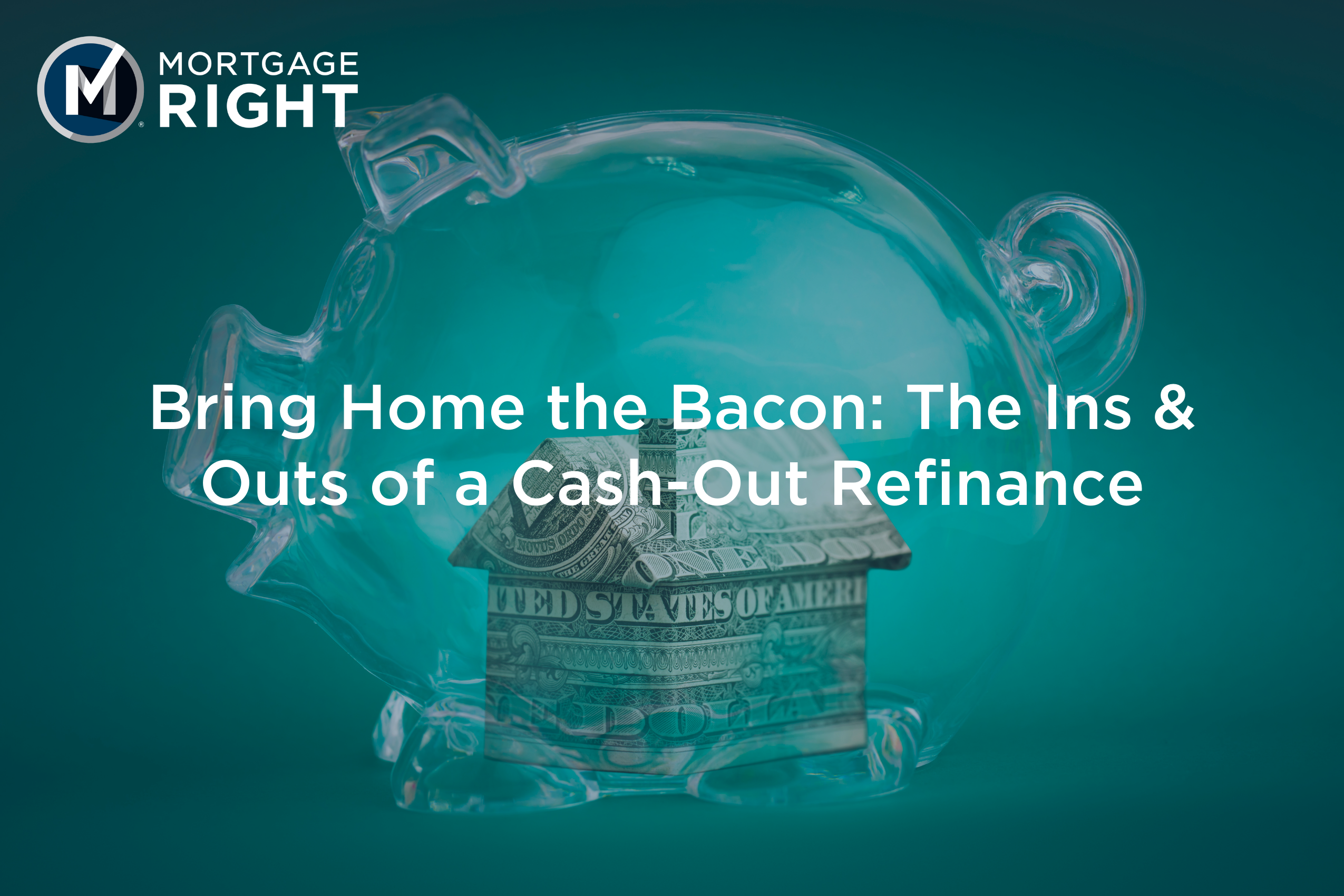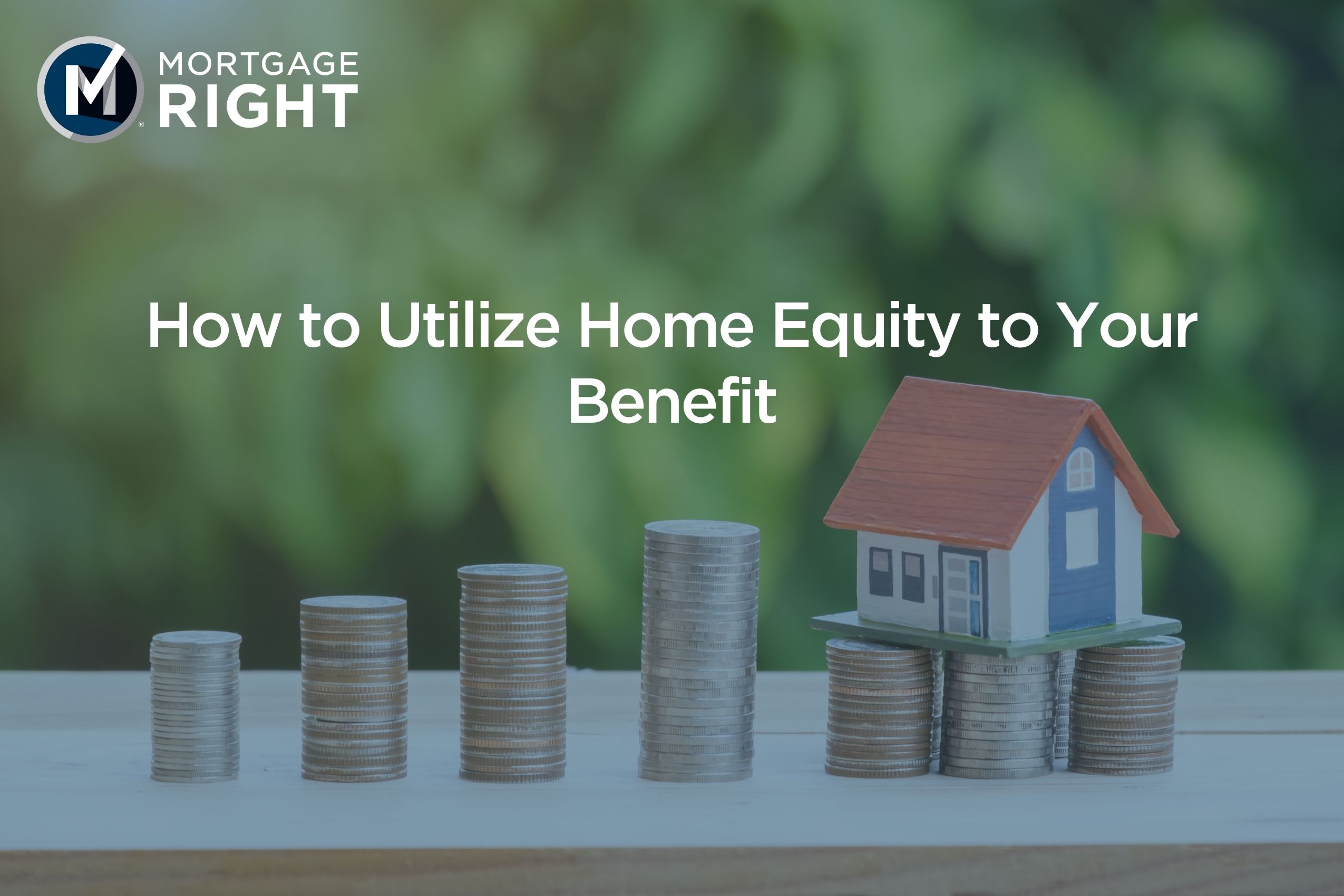
Picture This: You come home from a hard day’s work only to find the paint chipping from your walls and high-interest debt chipping away at your bank account. With a sigh, you throw yourself down in your favorite recliner and stare up at the ceiling in defeat—until it hits you. There is a reason a home is considered one of the best investments you can make in your lifetime, and using the roof over your head to put cash in your pocket might be just what you need to get your life back on track.
What Is a Cash-Out Refinance?
When refinancing a mortgage, you replace your existing loan with a new one for the same amount—usually at a lower interest rate to reduce mortgage payments. But with a cash-out refinance, you substitute your current home loan with a new mortgage that is higher than your outstanding loan balance.
A cash-out refinance makes the most of the equity you have built over time by letting you pocket the difference between the two mortgages in cash. This lump sum opens the door for consolidating high-interest debt, making important purchases, or tackling large-scale home renovation projects.
The Equity of It All
Home equity is the backbone of a cash-out refinance, so let’s look at the numbers.
Say you purchased a home at $250,000, and its value has risen to $300,000. Having lived in the home for five years, you have managed to pay your mortgage down to $215,000.
The equity built in your home is simply the difference between your mortgage balance and your home’s value. Which, in this example, is $85,000.
*Though you might be itching to utilize the entire amount, lenders generally only allow you to withdraw a portion of it. Assuming you can only refinance 80% of the home’s value, you take out $17,000 in cash, while $68,000 remains in the home.
Yays & Nays of a Cash-Out Refinance
Yays
The advantages of a cash-out refinance often outweigh those of other loan options. Here’s how a cash-out refinance can help your finances thrive:
- Land a lower interest rate – Generally, a mortgage refinance is an opportunity to get a lower interest rate than you would if you opted for a HELOC (Home Equity Line of Credit) or a home equity loan. This benefit also applies to a cash-out refinance with the added perk of pocketing some cash you might need.
- Fund home improvement projects – One of the easiest ways to add value to your home and boost your overall homeowning experience is to start home improvement projects. Renovating your bathroom or giving your kitchen a facelift can increase your home’s appeal and future selling potential.
- Consolidate high-interest debts and pay them off – Are you drowning in debt? Using a cash-out refinance to pay off high-interest credit cards (and other debt) can bring you back above water and save you thousands in future interest payments.
- Pay for other expenses – Have a child going off to college soon? You can use your home’s equity to pay for your child’s tuition in the event of student loan interest rates being higher than the rate of your refinanced mortgage. Just want the money to splurge? Have at it! You can use the lump sum you receive from a cash-out refinance to purchase virtually anything.
Nays
Though beneficial for many homeowners, a cash-out refinance isn’t always the best choice for every situation. Here’s why you might want to consider alternatives:
- Higher interest rate than expected – Getting a cash-out refinance might seem like a no-brainer, but be sure it is working in your favor. Generally, you want to refinance if the outcome will be a lower interest rate. If a cash-out refinance ends in an interest-rate spike, it might not be the route you want to take.
- You can’t avoid closing costs – Because a cash-out refinance is still a refinance, you have to pay closing costs. Typically, the closing costs are deducted from the cash you are receiving and not out of pocket. It is always a good idea to consider the overall financial benefit of a cash-out refinance. If your potential savings are less than the costs, a cash-out refinance might not make sense for your situation.
- Taking a chance with your home – Though a cash-out refinance is yours to use however you choose, always be aware of the risk that comes with using your home as collateral. Be sure to take out no more than the amount you need, and put it toward a project that is guaranteed to benefit you financially.
- Enabling unhealthy financial habits – As tempting as it may be to use your home as a cash cow, tapping your home’s equity to finance every expense could cause a sense of false security and, ultimately, lead to a resurfacing of the debts you initially paid off.
Do You Qualify?
To reap the benefits of a cash-out refinance, you need to qualify. Much like getting a mortgage for a new home, if you are considering a cash-out refinance, your qualification for the loan will be based on your credit score, finances, and property.
While requirements for a cash-out refinance differ between lenders and the type of loan, these are the general criteria:
- More than 20% equity in your home
- Verification of the home’s value with a new appraisal
- A minimum credit score of 620
- Debt-to-income ratio (including the new loan) of 43% or less
- Employment and income verification
The Big Picture: Is a Cash-Out Refinance Your Best Option?
Whether you want to revamp your basement or knockdown debt, a cash-out refinance can be an attractive option when it comes to meeting your financial goals. Are you still on the fence about a refinance? Reach out to MortgageRight, and we’ll help you down.
















